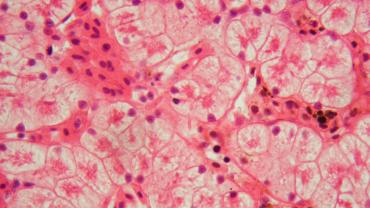
More than half of the human brain consists of lipids. Phospholipids are a type of lipid found in cellular membranes. They are particularly important for brain function and nervous system health.
Citicoline, or cytidine-5’-diphosphocholine, is a precursor in the synthesis of phospholipids, particularly phosphatidylcholine, which participates in the biosynthesis of acetylcholine. In animal and human studies, citicoline has been shown to have neuroprotective properties and improve cerebral metabolism.
Citicoline has many mechanisms of action, including inhibition of apoptosis associated with cerebral ischemia, potentiating neuroplasticity, and increasing neuroprotective sirtuin-1 protein levels in the brain. Sirtuin-1 may help regulate neuronal aging and may have a protective effect against certain neurodegenerative diseases. Citicoline may also inhibit phospholipase A2, which supports a reduction in reactive oxygen species formation, neuroinflammation, and neuronal damage. It has also been shown to increase striatal dopamine levels and synthesis rates and inhibit dopamine reuptake.
A systematic review examined the potential role of supplementation with citicoline on individuals with the neurodegenerative disease Parkinson’s disease (PD). The authors reported improvements in disease markers related to PD such as rigidity, akinesia, bradykinesia, motor function, and depression. Delays in the progression of cognitive impairment were also observed in individuals with PD after adjuvant supplementation with citicoline for eighteen months. Citicoline was also reported to have negligible adverse effects.
The neuroprotective effects of citicoline may also be due to its likely ability to raise levels of serotonin and lower glutamate levels. It also may stimulate the regeneration and repair of damaged neuronal cell membranes. Citicoline has been shown in clinical studies to significantly improve the quality of life in individuals after stroke. It also may contribute to fewer cognitive impairments in this population.
Citicoline may also improve memory in certain populations. One study involving individuals with inefficient memories showed improvements in a delayed logical memory test after supplementation with citicoline. It has also been shown to be beneficial to low-scoring individuals in problem-solving, oral memorization, and working memory.
Studies also indicate that citicoline may improve markers related to traumatic brain injury (TBI). One placebo-controlled study assessed the potential effect of citicoline on individuals with TBI in the intensive care unit (ICU). Individuals who received citicoline supplementation experienced more favorable outcomes and had higher odds of ICU survival than those who received a placebo. It is noteworthy to consider that this study consisted of 67 patients. Therefore, more research is required prior to making further conclusions on these current results.
Citicoline is a molecule that may support brain function, cognition, and neuronal health. Supplementation with citicoline may provide greater availability of phospholipids such as phosphatidylcholine and may help the repair of damaged neuronal cell membranes.
By Colleen Ambrose, ND, MAT